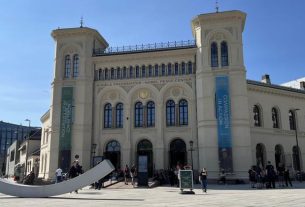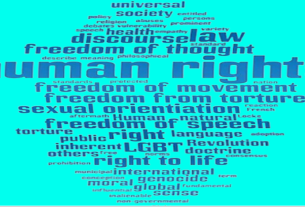The devastating earthquake in Gaziantep left thousands of people in Türkiye and Syria under the rubble. The first hours were vital to rescue these people, some of them children. Silence was also key in these operations.
More than 1,600 European rescuers mobilised through the EU Civil Protection Mechanism worked tirelessly to pull survivors from the ruins. But how did they do it?
In a first-hand account, the Hungarian rescue team explains how they managed to save Selma’s life.
The moment when Selma was evacuated
© Hungarian Civil Protection, 2023.
4:00 AM on Wednesday, 8 February in Antakya, Türkiye. It’s minus 9 degrees Celsius and 47 hours has passed since the devastating earthquake rocked the area.
The 55 members of the Hungarian team were searching non-stop for survivors trapped under the ruins. They inspected the ruins of a big building with search dogs, cameras and acoustic tools.
Before the earthquake, the Rönesans Rezidans was a huge building consisting of 3 blocks, which used to function as a hotel and apartments. The huge building, equipped with swimming pools, a fitness room, and an underground parking garage, fell on its side during the earthquake.
The rescue of survivors had been going on for many hours. Time was running out.
One of the Hungarian units with 4 firefighters was visiting a new, unexamined part of the damaged area designated for the Hungarians. The small team, led by firefighter major Roland Farkas, ventured further into the ruins of block 3 of the building, despite the continuous and strong aftershocks.
“Shush! Be quiet!” someone said. They heard a very soft muffled female voice.
They immediately started to go towards the direction of the sound. They could only fit if they crawled. A woman trapped under the rubble screams in Turkish.
The 4 firefighters didn’t speak Turkish, and the woman didn’t speak Hungarian, but they understood each other well with a little English.
“What is your name?”
“Selma,” she answered.
It is essential to communicate with the person in trouble so that she feels as safe as possible, because she still has to remain patient for a long time. Meanwhile, firefighter captain Laszló Kormos held her hand and asked for her name.
“Her name is Szalma,” explained László to the others. Szalma means straw in Hungarian.
“Not Straw, Selma!” said the woman trapped under the ruins, who even had enough presence of mind to correct the firefighters.
“Calm down, Straw! We are going to save you!
© Hungarian Civil Protection, 2023.
They dug in the rubbles, packed the ruins, and cut the concrete blocks and furniture for 7 hours to release Selma.
Even on the rescue board, Selma said continuously, already joking, relieved and still holding the firemen’s hand, “my name is not Straw, but Selma!”
They had to dig in the demolished building through 5 metres for the woman in her 40s, who was scraped out with 10 fingernails by the firefighters.
The team kept all the rescued people in their hearts. However, saving Selma and all it entailed – the struggle holding the girl’s hand and talking to each other in a mixed language – was etched into their memory.
Story by Dániel Mukics, Spokesman, National Directorate-General for Disaster Management of Hungary.
Publication date: 22/02/2023



